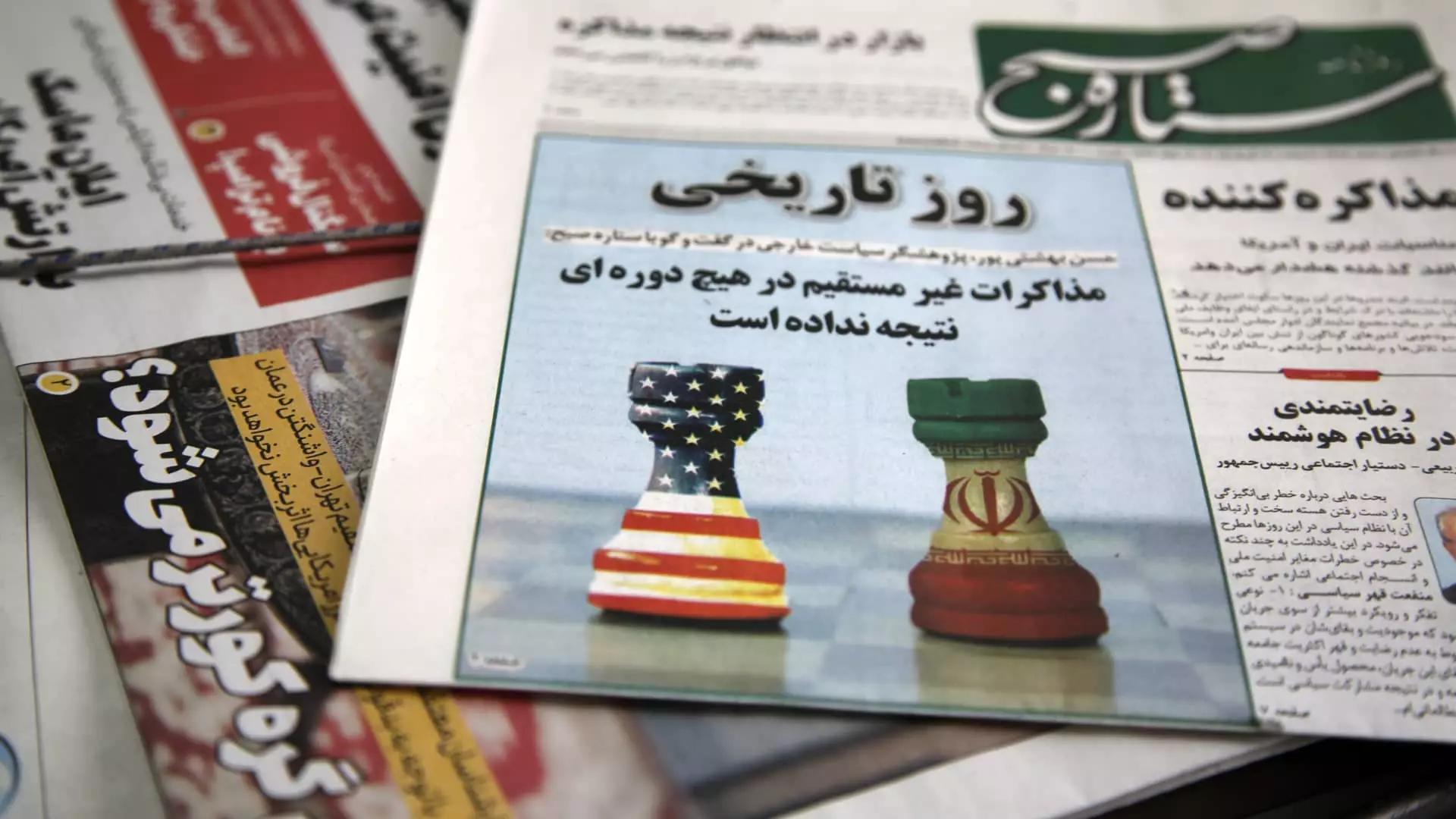The Iran-U.S. relationship has ebbed and flowed through decades of tension, betrayal, and hostility. The impending nuclear talks in Rome come at a critical juncture where the stakes have never been higher. Iran’s intentions regarding its nuclear program are under acute scrutiny not just for their potential to disrupt geopolitical stability, but also for their implications for global security. Yet, amid these serious concerns lies a stark realization: both nations are caught in a gripping cycle of distrust that fuels an adversarial approach rather than a collaborative one.
The historical backdrop of the nuclear negotiations is fraught with complications. Former President Trump’s abrupt withdrawal from the nuclear pact in 2018 not only intensified existing hostilities but also complicated future discussions about Iran’s nuclear pursuits. Unleashing a torrent of sanctions has severely hampered Iran’s economy and, paradoxically, may have emboldened its resolve to pursue nuclear capabilities. In a world that often rewards aggression and posturing, engaging in meaningful dialogue has become a Herculean task.
Echoes of Cynicism in Diplomatic Talks
While Iranian Foreign Minister Abbas Araqchi and Trump’s Middle East envoy Steve Witkoff prepare for indirect negotiations through mediators from Oman, this setup is clarion evidence of the entrenched mistrust that defines these talks. It speaks volumes about how far apart the two sides remain, as direct dialogue is off the table. There seems to be an uneasy recognition that they are not just negotiating about nuclear capabilities but about deeply rooted perceptions and ideologies.
Iran’s Supreme Leader Ayatollah Ali Khamenei has embodied this duality perfectly, expressing a tempered expectation about the negotiations. His words echo a cynical realism; optimism would seem naive under the circumstances, yet pessimism could lead to inertia. The postponement of hope for an immediate resolution suggests that both parties are skirting around an uncomfortable truth: significant breakthroughs require both sides to make substantial concessions, something neither appears ready to entertain.
The Insatiable Need for Certainty
At the heart of Iran’s negotiating strategy lies a palpable desire for assurances. The country demands watertight guarantees against any potential reneging by the U.S., a past experience that weighs heavy on their collective psyche. The U.S., on the other hand, seeks to curb Iran’s uranium enrichment activities, firmly believing that they are a smokescreen for ambitions that could gravely threaten regional and global security.
The Iranian leadership’s staunch refusal to dismantle its uranium enrichment centrifuges or reduce its enriched uranium stockpile below 2015 levels reasserts a challenging impasse: In their eyes, these capabilities are not merely bargaining chips but a matter of national sovereignty and pride. The consistent rejections of talks over missile capabilities further illustrate Iran’s commitment to maintaining a robust defense, complicating the diplomatic landscape further.
The Role of International Mediation
As both sides grapple with their positions, the role of international mediators cannot be understated. Russia’s willingness to assist hints at a potential recalibration of alliances and assertive engagement from other global players to help ease tensions. However, true mediation necessitates that both parties are willing to genuinely engage in compromise, rather than merely going through the motions of diplomacy.
The Omani mediators’ involvement also raises questions about their neutrality and capability. Although their assistance may provide a path for dialogue, history warns that intermediary involvement can sometimes lead to tilted negotiations or exacerbate mistrust if perceptions of bias arise.
The Path Forward: An Illusory Road to Peace
With both sides preparing for what might be futile talks, the upcoming negotiations in Rome symbolize the perennial tug-of-war that has long defined U.S.-Iran relations. While the hope for peace rests in their ability to break through entrenched positions, there remains a profound skepticism that hangs over discussions like a dark cloud.
In this tense international landscape, the prevailing logic of “maximum pressure” undermines the very negotiation processes intended to establish a framework for dialogue. If both nations genuinely seek to pivot from hostility towards a cooperative resolution, they must grapple with the haunting legacies of the past and the uncertain terrain of the future. The question looms—will they choose the path of confrontation, or dare to traverse the rocky road towards understanding and reconciliation?


Leave a Reply